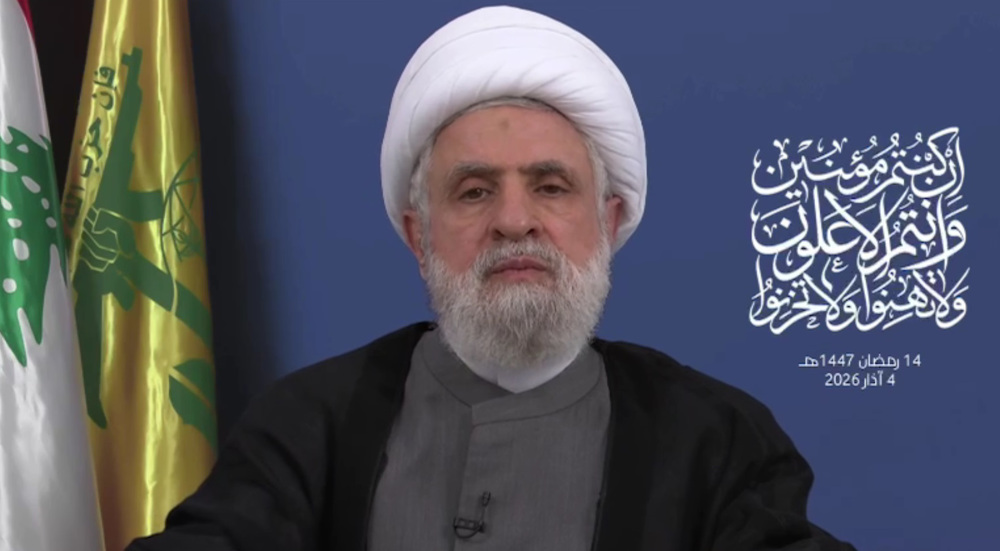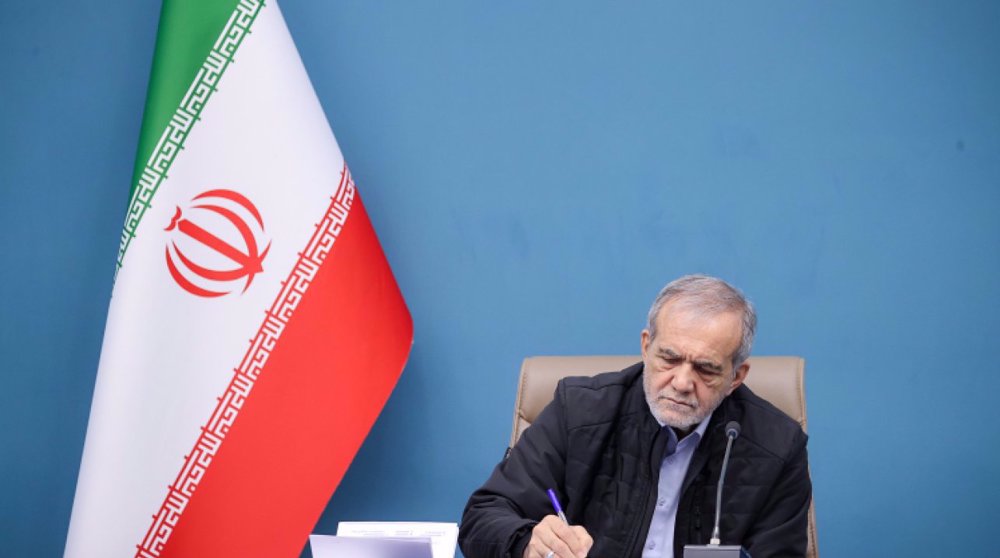Hamas calls for permanent corridor as aid trucks enter Gaza for first time since carnage
The border crossing between Egypt and the Gaza Strip has opened for the first time since the Israeli regime launched its brutal onslaught on the besieged enclave two weeks ago.
Lifeline supplies have entered the Gaza Strip after the conditional opening of the Rafah crossing with Egypt, the World Health Organization (WHO) said on Saturday, according to Palestine’s official WAFA news agency.
The news agency added that trucks carrying humanitarian aid for war-torn Gaza wait on the Egyptian side of the border as they start passing into the Rafah border crossing.
WHO said it is working with the Egyptian and Palestine Red Crescent societies to ensure the safe passage of these critical supplies and their delivery to health facilities as hospitals have already reached a “breaking point” due to shortages and depletion of medical supplies.
“These supplies are a lifeline for severely injured people or those battling chronic illnesses, who have endured a harrowing two weeks of limited access to care and severe shortages of medicines and medical supplies,” WHO said, calling for “the protection of humanitarian aid teams in Gaza as they work to ensure the safe delivery of these supplies to where they are most needed.”
The Geneva-based organization stressed, however, that the supplies currently heading into Gaza will barely begin to address the escalating health needs of the besieged area’s 2.3 million Palestinians.
More than 200 trucks carrying roughly 3,000 tons of aid had been positioned near the crossing for days, but Egypt’s state-owned Al-Qahera news, which is close to security agencies, said just 20 trucks had crossed into Gaza on Saturday.
#صور | "تحرك شحانات المساعدة من معبر رفح بالجانب المصري نحو قطاع غزة المحاصر." pic.twitter.com/2UCQvMRxpk
— وكالة شهاب للأنباء (@ShehabAgency) October 21, 2023
‘Limited aid will not change humanitarian disaster’
Salama Marouf, the head of the Media Office in Gaza, confirmed the opening of the Rafah crossing, but called for the establishment of a permanent corridor to address the needs of Palestinians in Gaza.
“We caution that this limited convoy will not be able to change the humanitarian catastrophe that Gaza is currently enduring. It is vital to establish a secure corridor that operates around the clock to provide the essential humanitarian and service needs that are currently entirely absent,” Marouf said.
“We emphasize the necessity of permanently opening the Rafah crossing and urgently supplying all the essential requirements for humanitarian and service sectors, especially in light of the imminent depletion of fuel, the exhaustion of medical supplies and equipment to the minimum level, the shortage of foodstuffs, and the lack of electricity,” he added.
Israel’s brutal bombardment of Gaza began on October 7 in response to a surprise military operation by the Palestinian resistance movement Hamas, which itself was a response to intensified Israeli crimes against Palestinians in the occupied West Bank.
More than 4,000 Palestinians, mainly civilians, have been killed across the Gaza Strip as a result of Israeli bombardments. Over 13,000 People have also been injured.
Earlier in the week, the occupying regime carried out fatal strikes on al-Ahli al-Arab Hospital and many mosques in Gaza, where people displaced by the Israeli aggression had sought sanctuary.
On Thursday, Israel bombed the Greek Orthodox Saint Porphyrius Church where many Christians and Muslims had taken refuge.
The regime has intensified the siege of Gaza, leaving the city, home to more than 2.3 million Palestinians, without water, electricity, fuel and internet.
US war on Iran burns past $1bn in early days, with total projected to exceed $95bn
US officials warn of challenges posed by Iranian drones
'We warned repeatedly about the limit to our patience': Hezbollah leader
IRGC announces 'blinding' US, Israel's eye in region; vows harsher retaliation coming
Iraqi resistance leader urges Americans to ‘reclaim’ country from Israeli ‘puppet Trump
Iran blasts US-Israeli use of autonomous killer systems against civilians as 'war crime'
US-Israeli aggression left Tehran with no choice but to defend Itself: President Pezeshkian
Iran urges immediate intl. action against US attacks on schools









 This makes it easy to access the Press TV website
This makes it easy to access the Press TV website